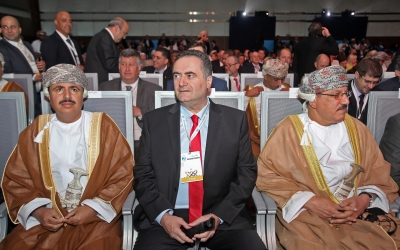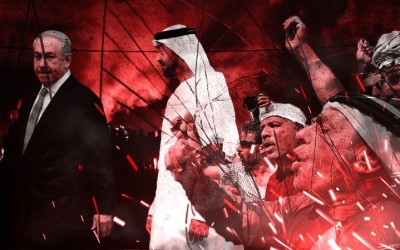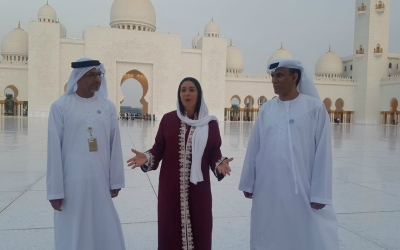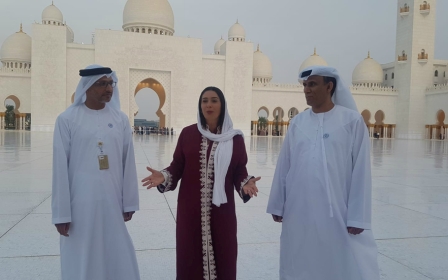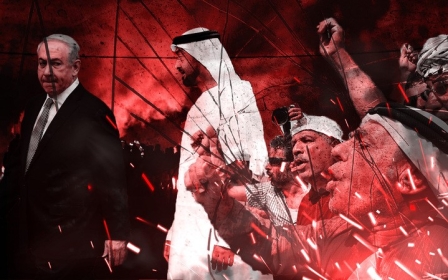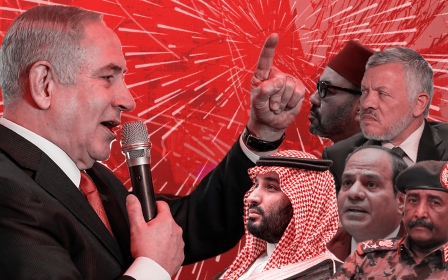Virtual embassies: Israel seeks to seduce the Gulf on social media
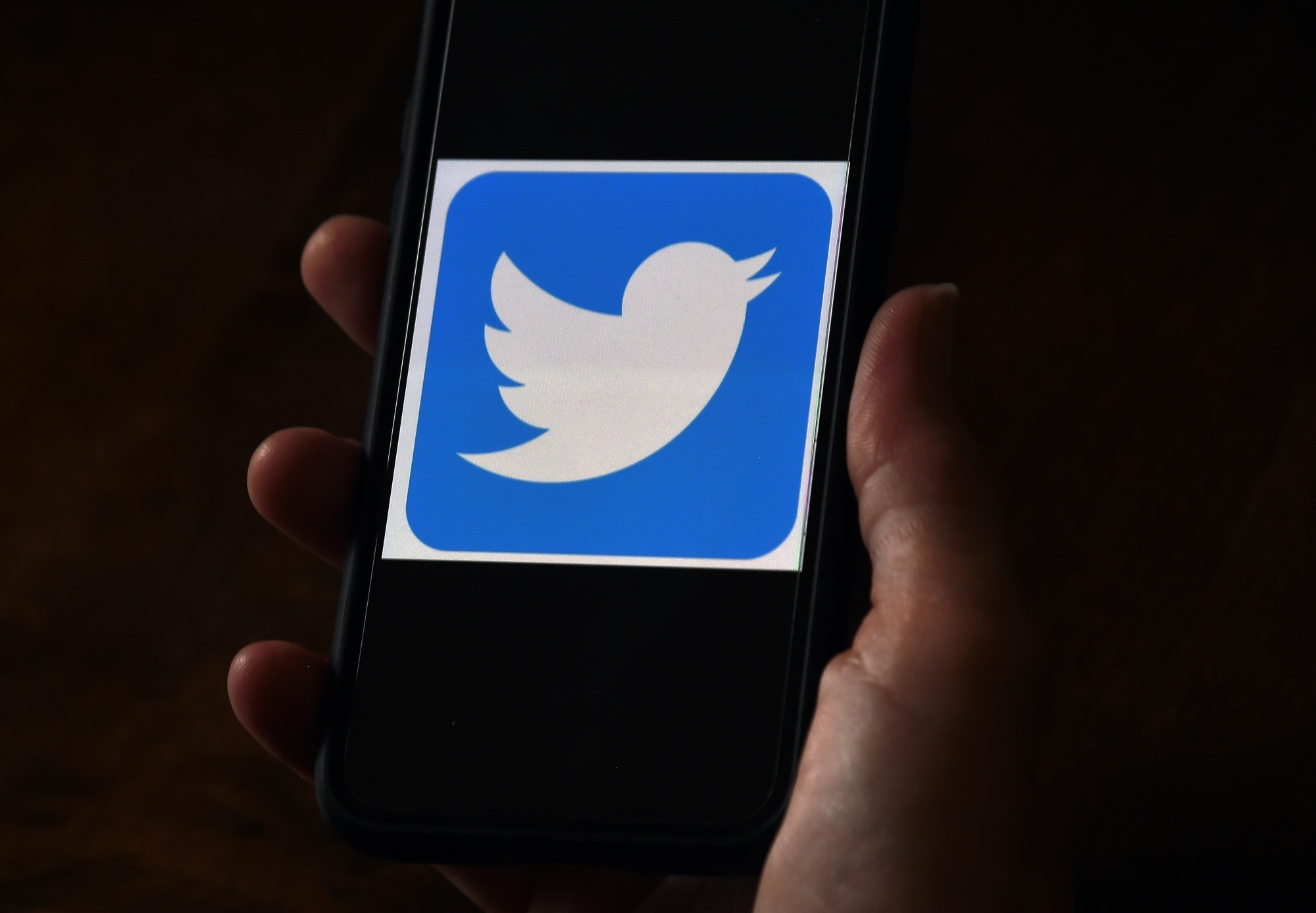
Amid contested reports from Israel’s most popular daily, Israel HaYom, in late May that three Arab states had green-lit Israel’s expected annexation plans, a video of a religious Jewish-Israeli playing songs by renowned Egyptian singer Umm Kulthum on the oud circulated on Twitter.
Israel’s clandestine relationship with many Arab states - such as Saudi Arabia or the United Arab Emirates - has been under the spotlight for a long time, but Israel is not content with governments alone: it has been turning to social media to make a breakthrough with those country's citizens as well, including videos such as the one mentioned above, which accumulated more than 20,000 views.
But can Israel successfully push for normalisation with other regional powers - especially in the Gulf - without addressing the elephant in the room: the occupation?
‘Israel in the Gulf’ - and online
Israel’s focus on Arabic-language media to sway public opinion is not new.
Following the UN partition plan of 1947, the Haganah Zionist paramilitary group decided to establish a radio programme geared towards the Arab world. Enter Basra-born raconteur Eliyahu Nawi, who would go on to become the longest serving mayor of the city of Beersheba. Nawi’s programme Daoud al-Natour - David the Guard - managed to overcome the barriers of being aired on an “enemy station”, he later told the Babylonian Jewry Heritage Centre, to become a fixture in the Arab world.
In the following decade, fearing the pull of pan-Arabism amongst Palestinian citizens, Israel’s national trade union associated with the ruling Labour party established a state-approved Arabic news outlet, Al-Yawm, which ran until 1968.
The latest incarnation of this trend, however, has taken place on social media.
In 2011, the Ministry of Foreign Affairs launched “Israel in Arabic” - which currently boasts more than 345,000 followers on Twitter.
Alongside a host of smaller formal and informal accounts striving to establish contact with citizens of Arab states, Israeli panic surrounding what would become the 2015 Iran nuclear deal led to a more directed approach in 2013, with the creation of another Twitter account entitled “Israel in the Gulf”.
Yonatan Gonen, the head of the Israeli Ministry of Foreign Affairs’ (MFA) Arabic-language new media sections, runs the Israel in the Gulf Twitter handle. Among their most successful “projects”, he told Middle East Eye, are videos of “young Israelis who express interest in learning about the culture and people who reside in the Gulf”.
'If in the past our followers were hesitant to express positive opinions about the state of Israel, today more and more Gulf citizens are sharing these views openly'
- Yonatan Gonen, head of Arabic-language media for the Israeli MFA
According to Gonen, about half a million Gulf nationals across platforms and accounts follow the MFA’s Arabic-language social media accounts. After a five-year hiatus, Israel in the Gulf was rebranded as a “virtual embassy” in 2018.
In April 2019, the Twitter account had collected 11,600 followers. Today, it has more than 44,000. The account pushes out several tweets a day in polished Arabic accompanied by slick videos, with a focus “on common geopolitical challenges that we share with the Gulf States, alongside branding content which highlights topics such as Israeli innovation and Israel's diverse social and cultural fabric”, Gonen explains.
Before the inception of these accounts, the relationship between Israel and Gulf states was mainly conducted on a state-to-state level. Gonen, however, claims there has been an observable shift in the responses on the ground.
“Over the past year, we have seen an increase in the number of positive responses and reactions from Gulf citizens on our different platforms, especially those from Saudi Arabia, UAE, Bahrain and Oman,” he said. “If in the past our followers were hesitant to express positive opinions about the state of Israel, today more and more Gulf citizens are sharing these views openly, both on our accounts and on their own personal accounts.”
Israel’s efforts, Gonen notes, has paid dividends: “Since we started our first account ten years ago, we can see more and more of our followers who credit our content with having changed their perceptions and attitudes towards Israel.”
The posts have even made headway with Gulf-based public figures, influencers, and policy makers, who have shared the material and openly advocate for their countries to establish official diplomatic relations with Israel.
A recently posted video about similarities between Hebrew and Arabic was even shared on Twitter by a close confidant of the Crown Prince of Abu Dhabi.
The new ‘semi-official’ reality
Ian Black, a visiting senior fellow at the London School of Economics’ (LSE) Middle East Centre, notes that the new “semi-official” line not only hinges on painting Iran as a bigger threat to regional stability than Israel, but also on convincing people that Israel is a natural part of the region.
While Gulf-Israeli relations may have initially hinged on the perception of a shared threat from Iran, the current virtual relationship is focusing more on development.
Israel in the Gulf depicts the sprawling skylines of Tel Aviv and Dubai side-by-side, while boasting of Israel’s advancement in the high-tech sector, on everything from medicine to space travel.
Many Gulf states already know this very well, having allegedly purchased Israeli cyber-surveillance systems to crack down on internal dissent. Foreign trade between Israel and Gulf states is estimated to be worth $1 billion annually, according to the Tony Blair Institute for Global Change.
But the response to Israeli overtures has also varied across the Gulf states. On one end of the spectrum, there is Kuwait, a historical haven for the Palestine Liberation Organisation (PLO) with a huge Palestinian population before the 1990s Gulf war, which has bucked this broader trend.
On the other end, you have the UAE, whose ambassador to the US Yousef al-Otaiba wrote an op-ed for Israeli newspaper Yedioth Ahronoth on 12 June to make an unprecedented address to the Israeli public, arguing that annexation would jeopardise the blossoming relationship between the two countries.
The implication from Otaiba’s piece was that the relationship between the UAE and Israel could thrive if the status quo was preserved - but even this warning seemed like a faint line in the sand. Soon after the op-ed was published, two Emirati companies announced they would work with Israeli firms to develop technology against the coronavirus.
Israel’s social media outreach to the public in the Gulf has helped consolidate these developing relationships, claims Moran Zaga, a policy fellow at the Mitvim Institute.
Zaga, who works on an annual report on relations between Israel and the UAE, notes that “in the 2018 report, the civilian section was very minor, especially relative to other sections on business and security ties”.
“However, the civilian section has witnessed the steepest growth,” she told MEE.
Zaga believes a few factors explain this growth. Israel has benefited from internal narratives in the UAE - such as its "Year of Tolerance" in 2019 and increased emphasis on interfaith relations - as well as international events which have forced the country to acknowledge the presence of Israel and Israelis, including on Gulf soil. Beyond this, Zaga notes that the MFA’s social media drive has also played its part.
Having your cake and eating it too
Israeli Prime Minister Benjamin Netanyahu has long touted that Israel can improve its relations with the Arab world without dealing with the Palestinian issue, and “Israel in the Gulf” certainly reflects this aim.
In data collected between July 2013 and April 2019, just 1.9 percent of their nearly 600 tweets made explicit reference to Palestinians, with all but one tweet coming before the 2018 rebrand. Another 4.7 percent of tweets mentioned Palestinian armed resistance group Hamas, but these were all concentrated around the time of Israel’s military operation in the besieged Gaza Strip in 2014.
Israel evidently attempts to eschew addressing its occupation of Palestinian territories and conflict with Palestinians, as the Palestinian cause is still widely perceived as having strong popular - if not always state - support in the Arab world.
This has led to one of the most conspicuous fruits of this digital diplomacy: a new breed of pro-Israel advocates from the Gulf on social media.
Mohammed Saud, a Saudi blogger and self-proclaimed “peace activist”, has over 26,000 followers on Twitter, and even met Netanyahu on a visit to Israel in July 2019. Saud expressed his views of Palestinians as a burden, preventing Saudi Arabia’s relationship with Israel from reaching its full potential.
However, Saud’s visit was met with almost unanimous rebuke on social media and anger from Palestinians during his visit to occupied East Jerusalem.
Meanwhile, Saudi journalist Abdul Hameed al-Ghobein claimed that his public calls for normalisation with Israel were behind his sudden denaturalisation by Saudi Arabia in December.
Although the Gulf Cooperation Council (GCC) is eager to enjoy the benefits of normalisation and public opinion may be slowly changing vis-a-vis Israel, these pro-Israeli activists remain outliers. Israel’s extensive efforts have yet to change that, and all Gulf monarchies are privy to the overwhelming consensus among their citizens in favour of the Palestinian cause.
Formalising these relationships therefore remains a red line, according to Black.
“Visible connections and normalisations won’t happen much beyond what we’ve seen already,” he said.
This was emphatically demonstrated by Saudi Crown Prince Mohammed Bin Salman’s 2018 tour of the United States, during which he hinted at a new regional order. He had barely landed back in the kingdom when his father King Salman issued the Dhahran Declaration, outright rejecting the idea that normalisation with Israel could occur without a solution to the Israel-Palestine conflict. The peak of Mohammed Bin Salman’s flirtation with Israel, then, was met with a slap on the wrist.
Despite the excited overtures, formal recognition is therefore unlikely to occur without a negotiated solution between Israel and Palestinian leadership, which, with the lingering threat of annexation, looks as unachievable as ever.
To what extent the coveted prize of ‘formal’ ties with the Gulf even matters, however, given the current scale of cooperation, is another question.
With clandestine relations marching on in almost every sphere of activity despite an increasingly entrenched occupation, Israel and the Gulf states, it seems, are having their cake and eating it too.
Middle East Eye propose une couverture et une analyse indépendantes et incomparables du Moyen-Orient, de l’Afrique du Nord et d’autres régions du monde. Pour en savoir plus sur la reprise de ce contenu et les frais qui s’appliquent, veuillez remplir ce formulaire [en anglais]. Pour en savoir plus sur MEE, cliquez ici [en anglais].


